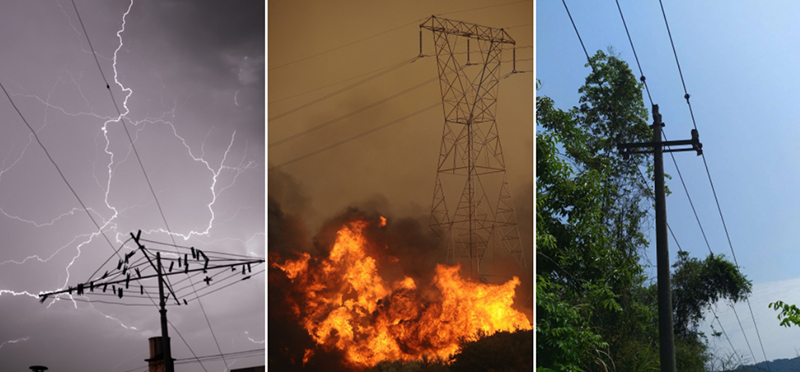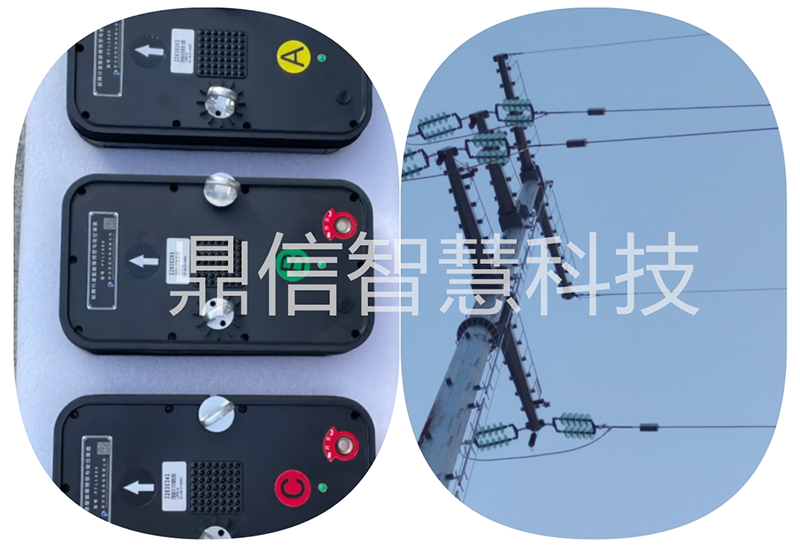As an important part of the power system, the safe and stable operation of transmission lines is crucial to the normal operation of the whole society. However, traditional transmission line fault location devices often face many technical limitations in actual operation, such as lightning strikes, hill fires, wind bias, tree barriers, floating objects and other complex environmental factors, which make it difficult to quickly and accurately locate the fault point, and the type of fault is difficult to identify. These problems not only increase the workload of maintenance personnel, but also have a serious impact on the stable operation of the power system.
Traditional transmission line fault location devices have technical limitations in this area that make it difficult to meet the needs of modern power systems. This paper will discuss these technical limitations and possible solution strategies.
Traditional transmission line fault location devices mainly rely on the principles of impedance matching and signal attenuation. Although this method is simple and easy to use, it is often difficult to accurately locate the fault point under complex operating environments, such as lightning strikes and hill fires, due to severe signal interference. In addition, since the signal attenuation is related to factors such as line length and line material, the accuracy of this method will be greatly reduced for transmission lines with long distances and complex materials.
Moreover, the traditional transmission line fault location device also has technical limitations in identifying the type of fault. For example, it is often difficult to accurately distinguish between different types of faults such as short circuit, grounding, etc., which undoubtedly increases the difficulty of maintenance of the power system with little gain.
In the face of these technical limitations, how to improve the performance of transmission line fault location devices? Here are several possible solution strategies.
1 , can consider the use of new fault location technology, such as traveling wave ranging technology. This technology utilizes the propagation characteristics of electromagnetic waves in transmission lines, which can realize the accurate positioning of fault points. In addition, because traveling wave ranging technology is not affected by signal attenuation and line material, therefore, for long distance, complex material transmission lines, its accuracy is higher.
2 、Improve the identification of fault types by introducing artificial intelligence technology. For example, by training deep learning models, automatic identification of different types of faults such as short circuit and grounding can be realized. This can not only improve the efficiency of fault processing, but also reduce human error. Multiple fault localization techniques and methods can be combined to form a comprehensive fault localization system. This can not only overcome the limitations of a single technology, but also improve the overall fault location performance.
*** Translated with www.DeepL.com/Translator (free version) ***
At present, Dingsin Wisdom Technology's distributed fault diagnostic device for transmission lines and distribution network traveling wave fault early warning and positioning device fully applies distributed traveling wave measurement technology, installing three monitoring terminals on transmission line conductors and distribution lines. Whether it's an industrial frequency fault signal or a traveling wave fault signal, the collection terminals are able to capture it at the time, monitor the type of fault, and locate the point of fault (tower-level positioning) to realize Line fault monitoring "second" response to meet the needs of modern power systems for efficient operation and maintenance. With the support of intelligent equipment, we can look forward to a smarter and more efficient power system in the future.






